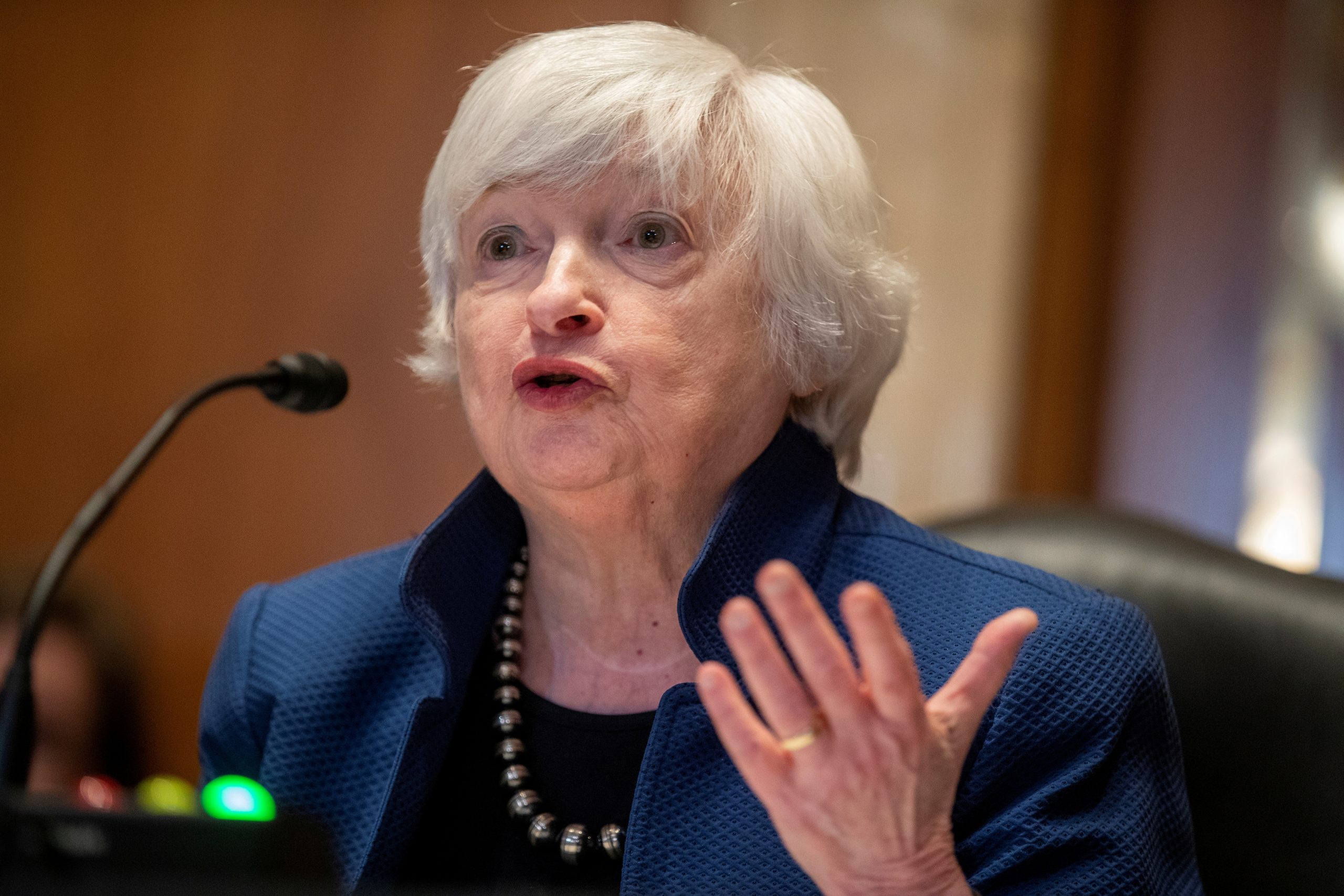
Samuel Case, FISM News
[elfsight_social_share_buttons id=”1″]
Treasury Secretary Janet Yellen sounded the alarm that the US could default on its loans if an agreement of some sort is not made to raise or suspend the debt ceiling.
The Treasury Department has been operating under “extraordinary measures” to pay for US commitments since the suspension of the debt ceiling expired on July 31st. In a letter to Congress, Yellen said that all maneuvering tactics to free up additional money currently in place will run dry sometime in October.
After the debt limit was reinstated on August 1, Treasury began employing certain extraordinary measures to continue to finance the government on a temporary basis. These measures, which are authorized by law and have been used in previous debt limit impasses, include a suspension of certain investments in the Civil Service Retirement and Disability Fund, the Postal Service Retiree Health Benefits Fund, and the Government Securities Investment Fund of the Federal Employees’ Retirement System Thrift Savings Plan. Once all available measures and cash on hand are fully exhausted, the United States of America would be unable to meet its obligations for the first time in our history.
Yellen also warned that waiting until the last minute to address the debt ceiling “can cause serious harm to business and consumer confidence, raise short-term borrowing costs for taxpayers, and negatively impact the credit rating of the United States.”
Democrats and Republicans are at a stand-off over the issue with Democrats wanting to significantly raise the limit, while Republicans are saying they will refuse to do so as it would facilitate the reckless spending that the Democrats are trying to push through in budget reconciliation.
On Wednesday, House Speaker Nancy Pelosi said the debt limit needs to be raised, but that there will not be a provision in the $3.5 Trillion Democrat spending package to do so.
